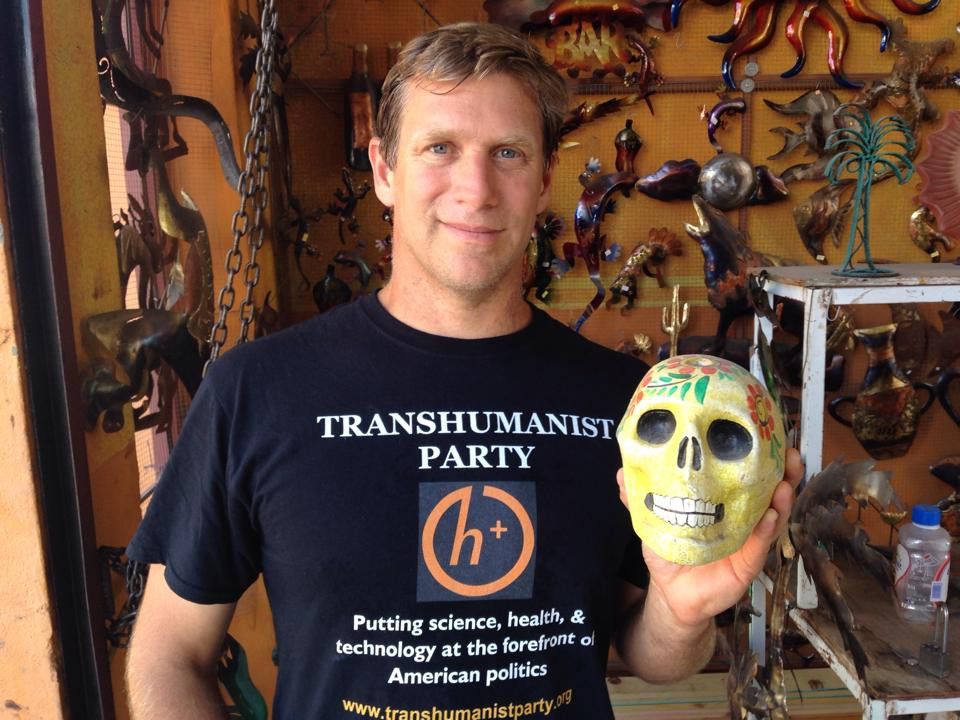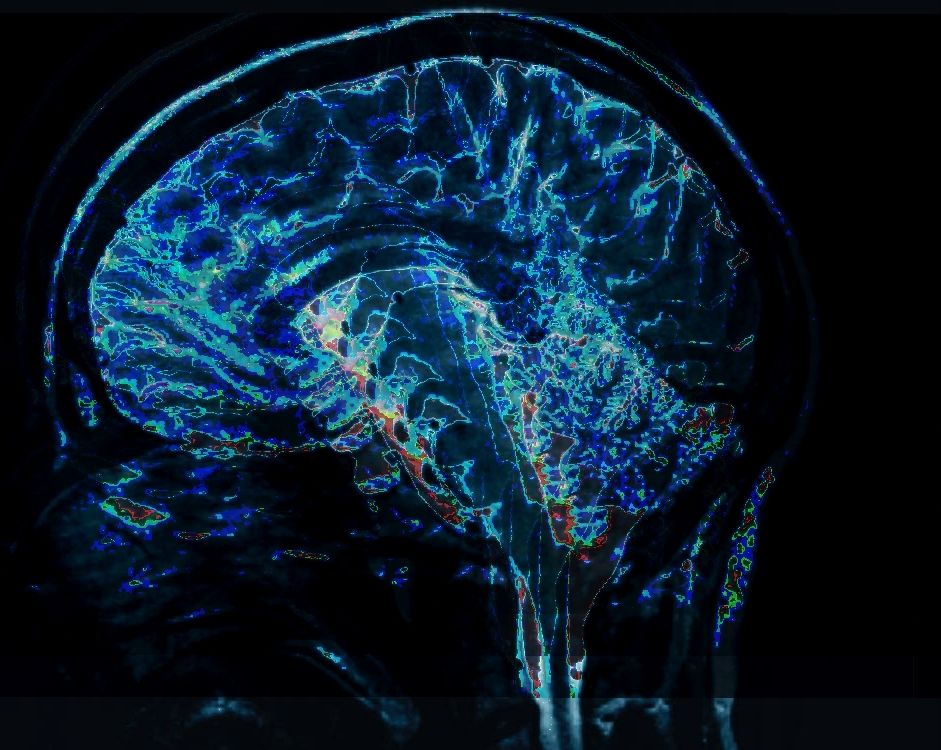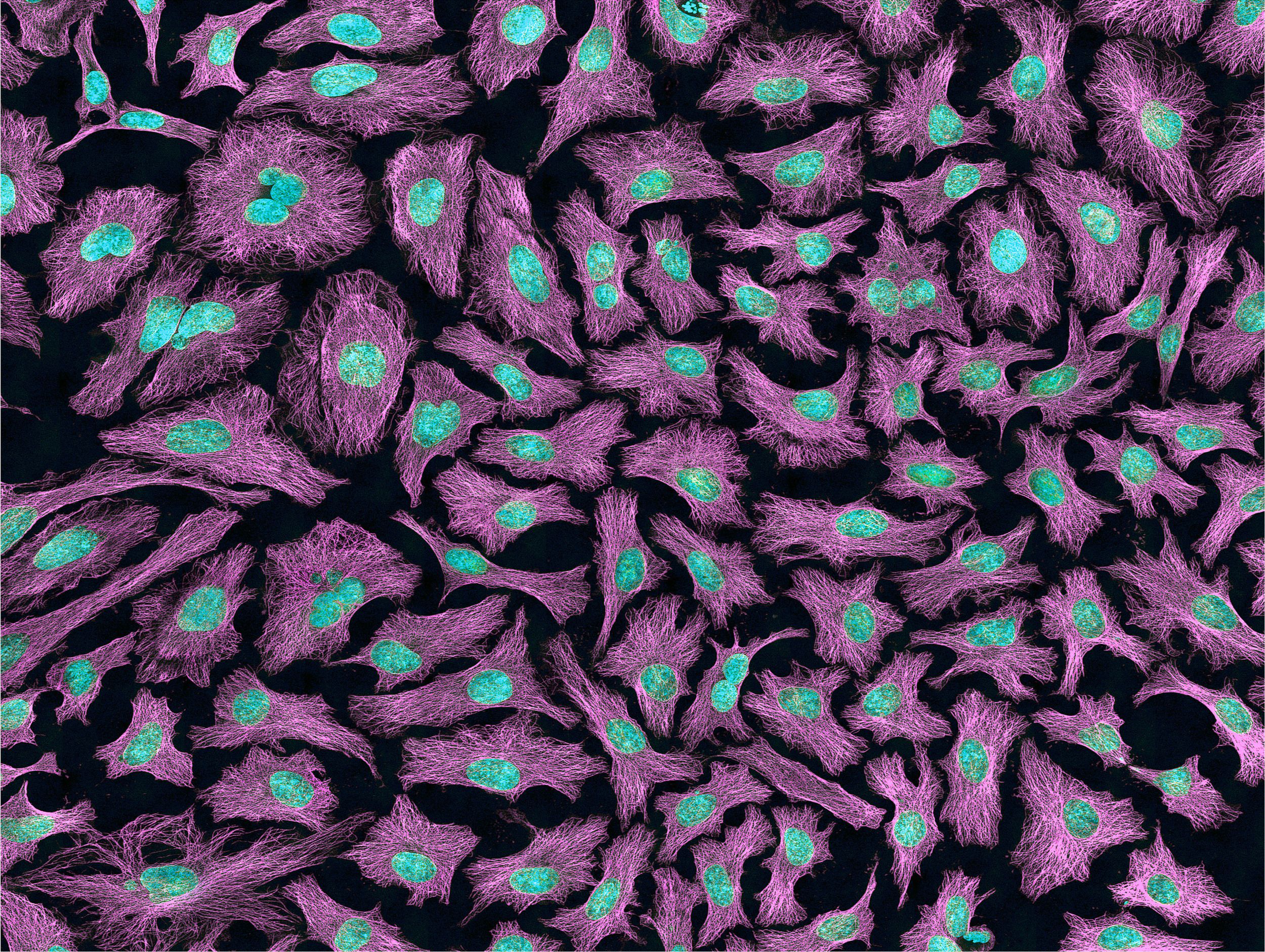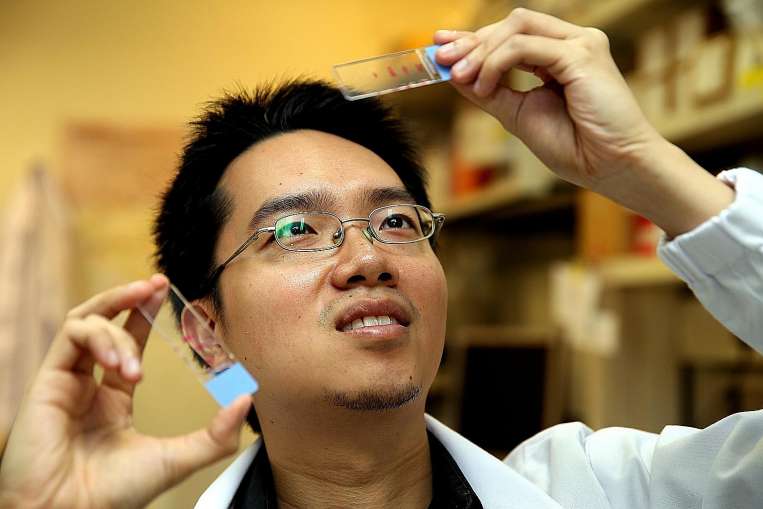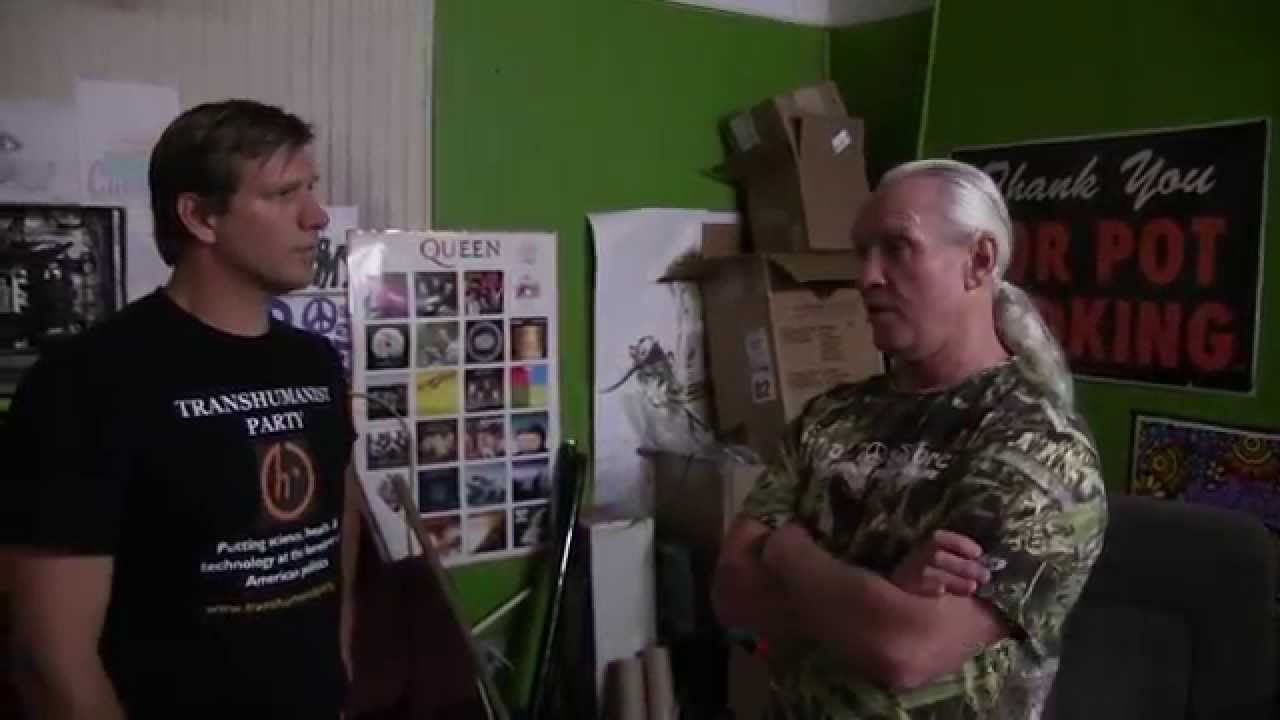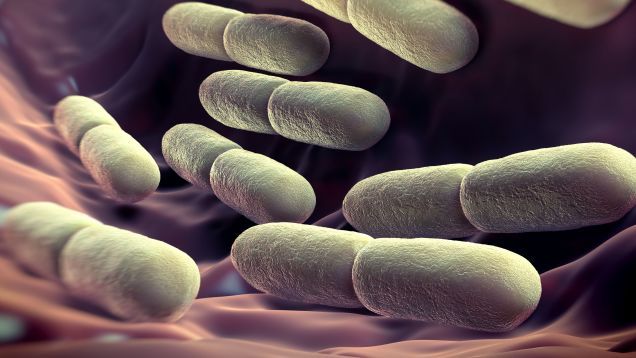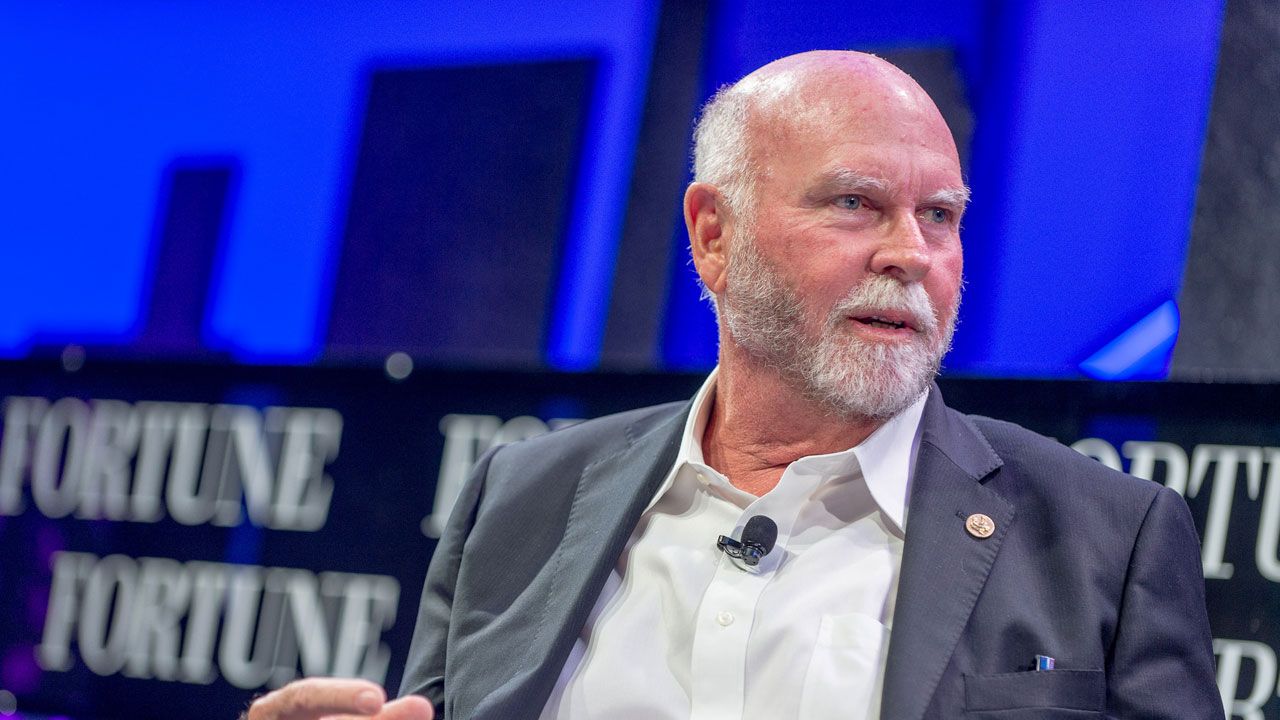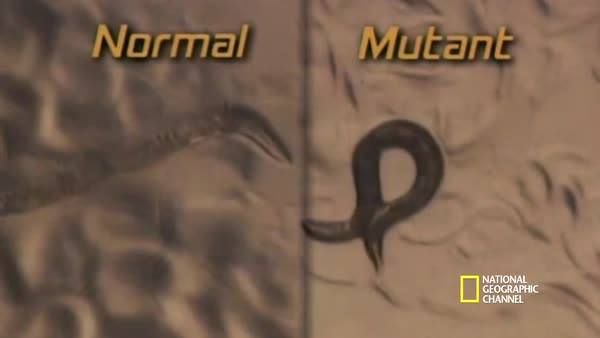A new article on my campaign with a provocative headline, but most of the story is nice. I’ll be speaking in Florida on Saturday as part of the Immortality Bus tour. We visited Alabama’s largest megachurch yesterday:
His name sounds funny to Americans, but presidential candidate Zoltan Istvan says it’s totally normal in Hungary, from where his parents hail. Istvan himself was born in Los Angeles and worked for National Geographic for years — a job that led him to explore science, particularly the concept of transhumanism, which posits that people will merge with technology.
Today, Istvan continues to write for Vice, Psychology Today, Gizmod o, and more — when he’s not campaigning across the country and promoting the Transhumanist Party platform, which promises better lives — and hopefully immortality — through science. Istvan will speak this Saturday at the Church of Perpetual Life in Hollywood, which promotes the same ideals and which New Times featured in a cover story earlier this year.
Istvan says that as a journalist, he used to cover nature, until “we were in Vietnam and I had a very close call with a land mine. I thought, ‘Why don’t I write less about nature and the environment and more about science, medicine, and future uses of science to conquer death?’” After leaving Nat Geo circa 2004, when he was about 28, to take care of his ailing father, he says he made some money in real estate and in 2013, “I wrote a novel called The Transhumanist Wage r, which launched my career as a futurist.”
Now he’s onboard with the Transhumanist Party, which has been established for about 14 months, he says. “It’s an actual, organized national party,” he says, though you’re unlikely to see it on a ballot because it’s nearly impossible for small political parties to get on “unless you have almost 50 or 60 million dollars lying around.”
